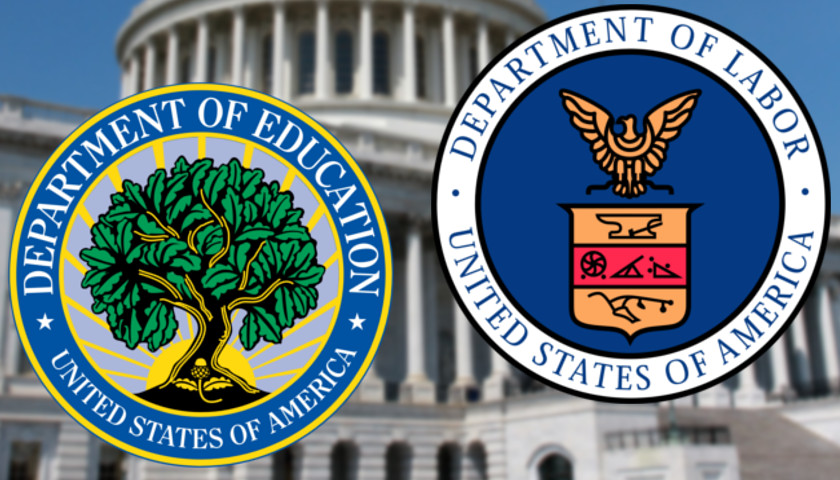President Donald Trump’s latest idea is to merge the U.S. Department of Education with the Department of Labor. This reflects his administration’s priority on workforce readiness and career development. Taxpayers understand the need to reduce federal spending, merge duplicate programs, and improve support for retraining and employment. The United States House Committee on Education and the Workforce is an example of the government already combining the two functions under one entity. So, the concept is not that far-fetched.
In their book, “Academically Adrift: Limited Learning on College Campuses,” Richard Arum and Josipa Roksa studied twenty-four hundred college students at twenty-four different universities over a four-year period. They reported that critical thinking and other skills such as writing were no longer progressing during college as compared to previous generations of students. This is really no surprise. However, America’s educational competitiveness is still unparalleled. We tend to focus on our weaknesses, rather than leveraging our inimitable strengths.
Society has long cherished the ability to think beyond the ordinary, according to Samuel Greengard. What happens when we lose that ability? Organizational stupidity is a phrase that comes to my mind. Adrian West added: “Developing our abilities to think more clearly, richly, fully—individually and collectively—is absolutely crucial [to solving world problems].”
It is important to note that creativity is a unique talent that cannot be taught straight out of a textbook. We are rapidly losing our ability to think creatively; in addition, music and art are often no longer valued. Grace Fearon of the The Independent suggests: “our society seems capable of praising and glorifying our child intellects, aspiring doctors and academics, yet the value of a student possessing a gift for writing, or music, or art appears demoted in comparison.” In a state like Tennessee, with a cultural legacy like Memphis and Nashville and other places, Music and Art are the business. We cannot lose that edge.
The real question to ask then: Do we think the well-meaning bureaucrats at the Department of Labor, will be more or less inclined to educate the whole child, or would they focus more on developing a productive workforce? There is a vital need for apprenticeship programs, job training programs, and a united focus on keeping the American workforce employed.
Bringing businesses and educators together to ensure high-quality classroom instruction and on-the-job training is a win for everyone, right? Except we are not creating widgets for factories. Many of the jobs our children will have may not even exist now. We cannot possibly provide the training for all the jobs that may exist in the future, we have to teach kids to think, to create, to make. Do you really think the Department of Labor is the vehicle we need spearheading this type of education? We must make sure that those who understand educating the whole child benefits all of us in the long term.
President Trump’s concept lacks significant details and will be difficult to maneuver through a deeply divided Congress. Our guess is that a merger between the U.S. Department of Education with the Department of Labor will not happen. Let’s hope we are correct.
– – –
JC Bowman is the Executive Director of Professional Educators of Tennessee, a non-partisan teacher association headquartered in Nashville, Tennessee. Permission to reprint in whole or in part is hereby granted, provided that the author and the association are properly cited.





I have a better idea. Totally disband and abolish both the Departments of Education and Labor.
I admit I have thought that a lot myself. I think the Department needs to be more of a clearinghouse and a repository to share ideas. it does need to be smaller for sure. It has done some great work in reading, after the National Institute of Health (Reid Lyon) explained the science behind it. the feds moved away from Whole Language advocacy and toward phonics and phonemic models of reading.